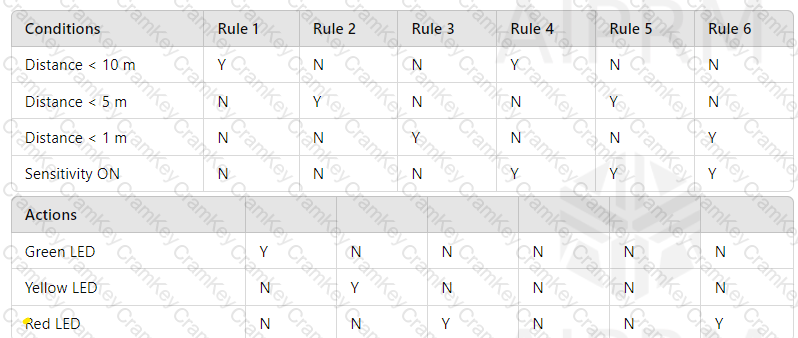| Exam Name: | ISTQB Certified Tester Foundation Level (CTFL v4.0) | ||
| Exam Code: | ISTQB-CTFL Dumps | ||
| Vendor: | ISTQB | Certification: | Foundation Level |
| Questions: | 328 Q&A's | Shared By: | cecilia |
You are testing a system that is used in motor vehicles to warn the driver of an obstacle when re-versing. Output is provided by a series of LED lights (green, yellow, and red), each illuminated based on clearly defined conditions.
The following summary describes the functionality:
•Object within 10 metres, green LED lit.
•Object within 5 metres, yellow LED lit.
•Object within 1 metre, red LED lit.
•Setting sensitivity mode to "ON" will result in only the red LED being lit when the object is within 1 metre.
The following decision table describes the rules associated with the functioning of this proximity warning system:

Which intended functionality is tested by Rule 5 in the decision table?
A typical objective of testing is to
Which of the following is a role that is usually responsible for documenting the findings (e.g., action items, decisions, recommendations) made by the review team as part of a typical formal review?
Consider the followingiteration planning taskswhere a tester can provide value:
Break down user stories into tasks (particularly testing tasks)
Estimate test effort for all testing tasks
Identify and refine functional and non-functional aspects of the test object
Which ONE of the following tasks should be ADDED to the above list?